Helping Communities Thrive
CCLF helps people in underinvested neighborhoods bring their ideas to life.
Since 1991, we have aligned capital with equitable social and economic outcomes. By moving challenging projects and initiatives forward, we empower residents and communities to build better futures.

We see our neighbors and their strengths
CCLF knows our borrowers and the tremendous talents they bring to their communities. Where others only see risk, we see potential. We provide accessible financing and strategic support to community-focused and -based organizations and enterprises that are typically left out—because we know these visionaries are essential to Chicagoland’s success.



Our Mission
We provide flexible, affordable and responsible financing and technical assistance for community stabilization and development efforts and initiatives that benefit low- to moderate-income neighborhoods, families and individuals throughout the Chicagoland area.
Our Areas of Impact

Affordable Housing Stable housing makes communities grow
We help borrowers buy and rehab single-family, multi-family and cooperative housing in disinvested areas in order to create quality homes where people can flourish and grow.
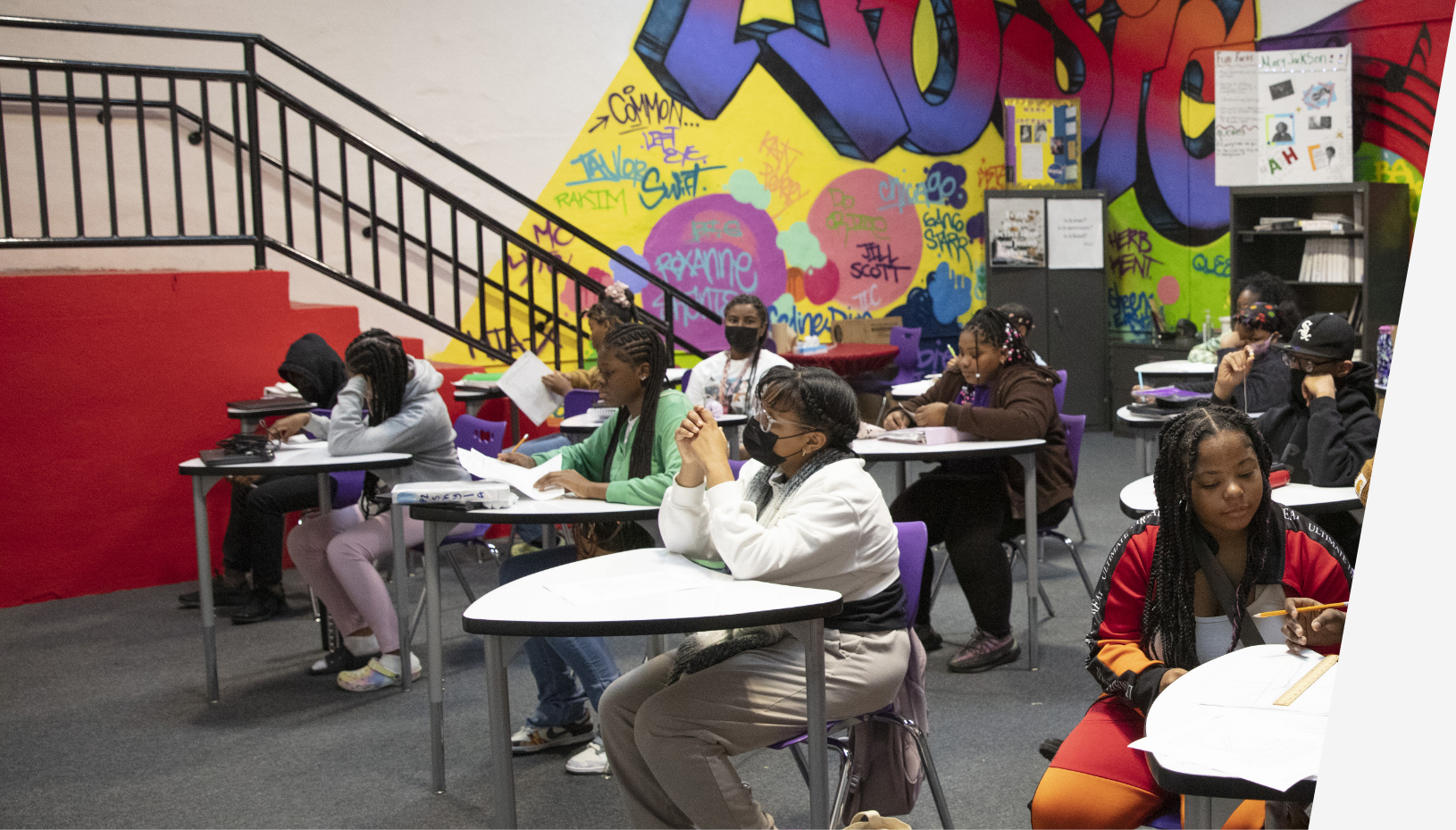
Community Facilities A strong mission makes communities grow
We finance the purchase and rehabilitation of properties that provide social services, jumpstart the local economy and bring arts and culture, education and jobs to Chicagoland neighborhoods.
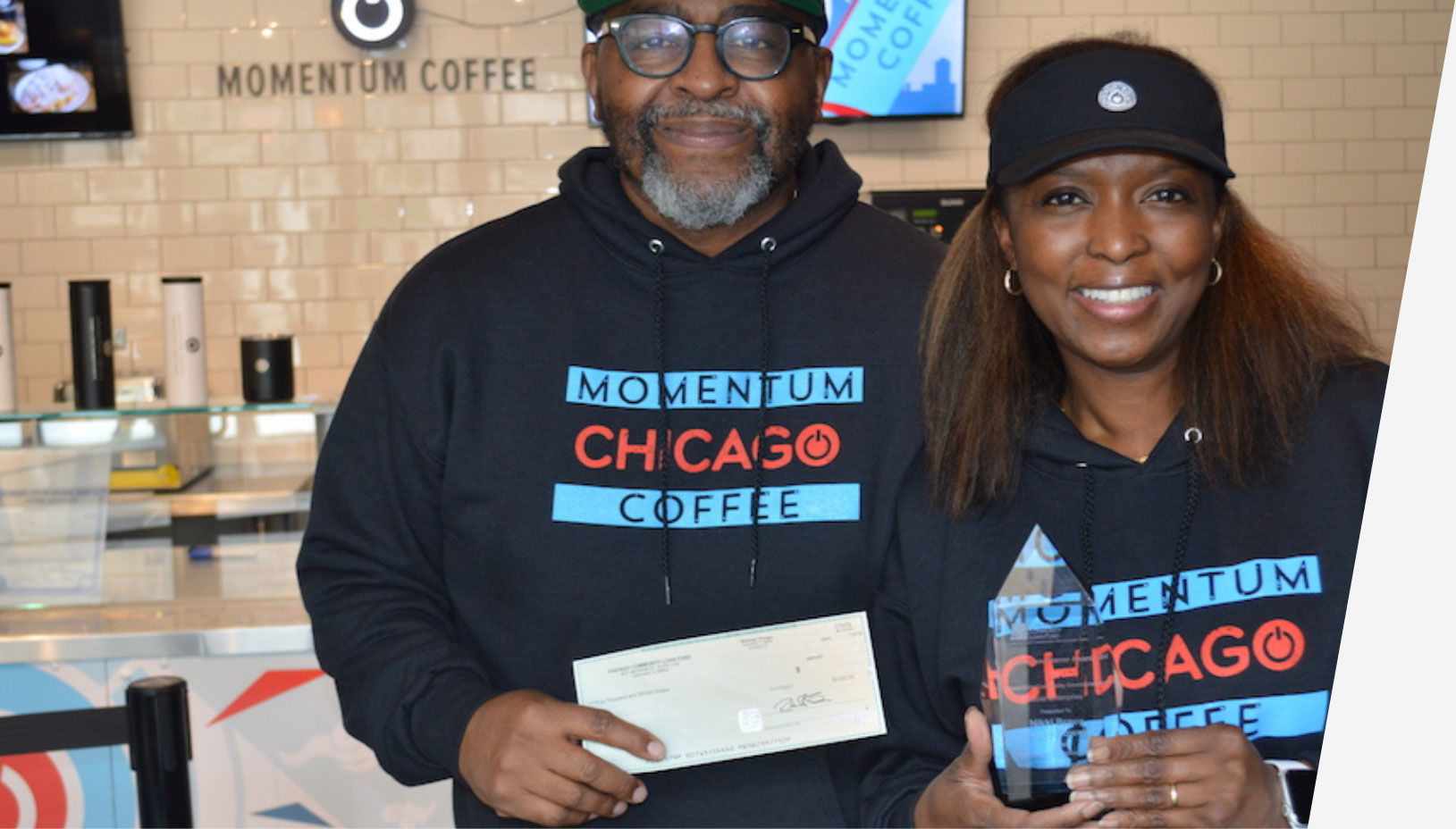
30th Anniversary One Chicagoland: All Communities Rising
CCLF celebrates 30 years of helping visionary for- and not-for-profit developers create housing, commercial retail, community facilities and social enterprises.
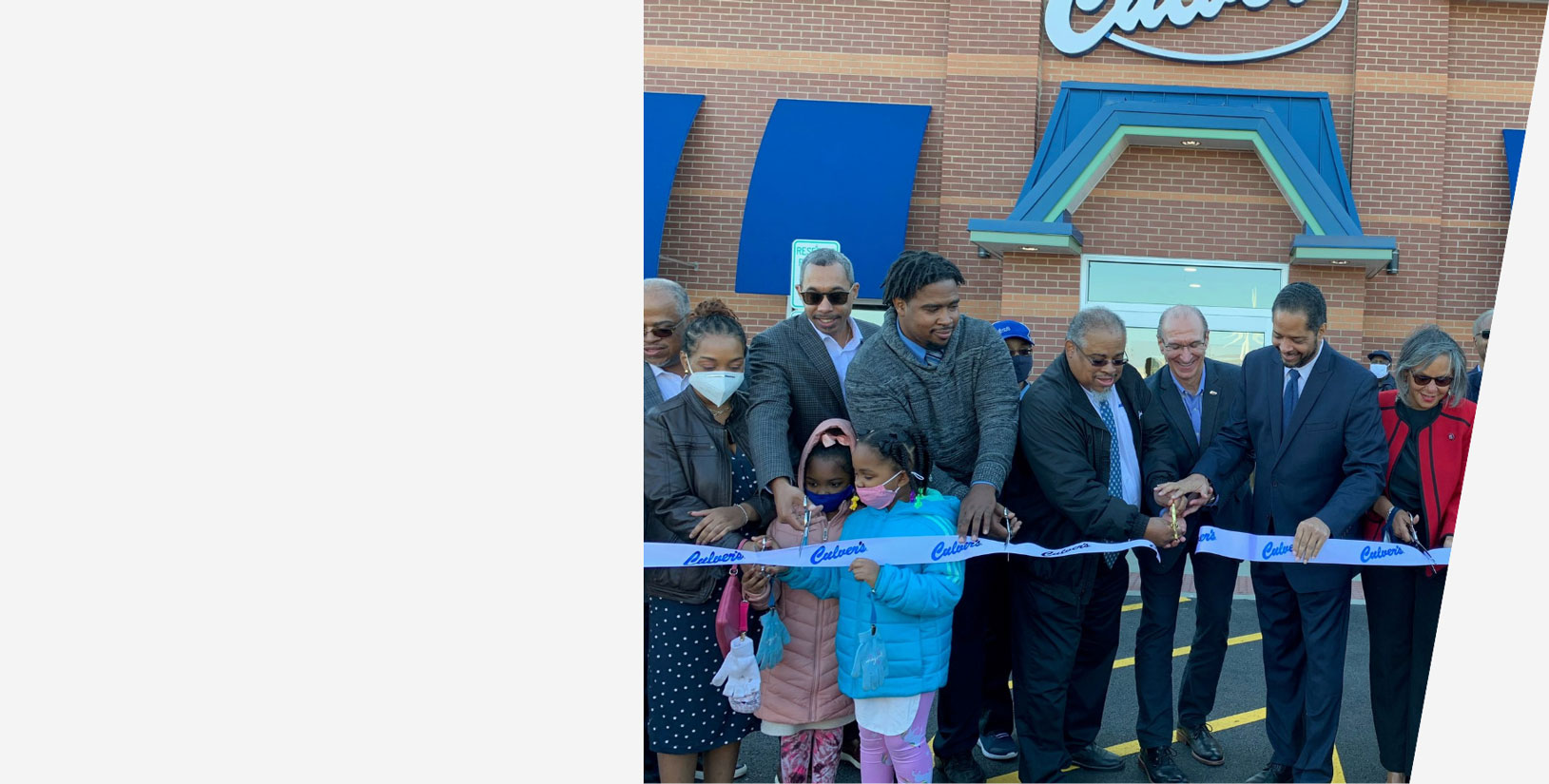
Commercial Real Estate Thriving communities make businesses grow
We provide low-cost financing for strategic office and retail projects that revitalize communities, create local jobs and drive transformative change in lower-income neighborhoods.
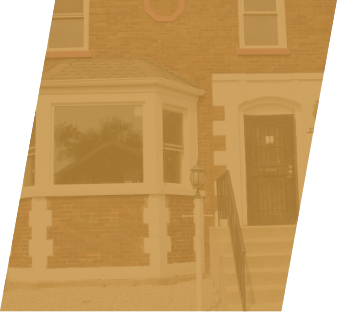
Affordable Housing
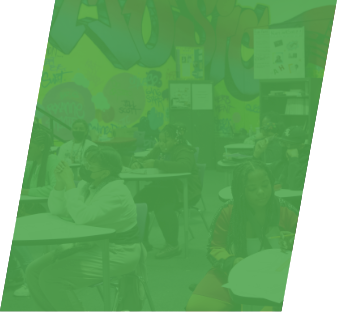
Community Facilities
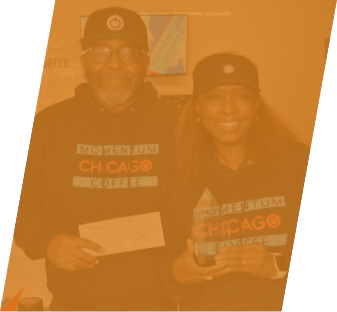
30th Anniversary
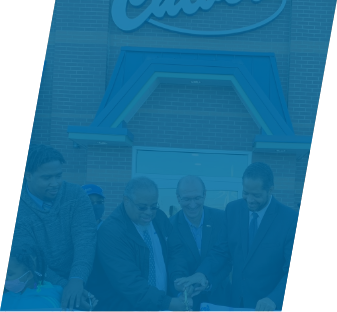
Commercial Real Estate
The Newmans Preserving Affordable Housing in Auburn Gresham
Through their real estate development company, EN5 Community Development LLC, the couple has spent nearly two decades restoring damaged, neglected properties in Chicago neighborhoods to create affordable housing for homebuyers and renters alike.
“I think everyone deserves affordable housing, and I think this has been our goal,” said Mr. Newman. “You shouldn't be pushed out of Chicago. If you're from Chicago, you should have an opportunity to remain in Chicago. If you want to come to Chicago, we shouldn’t make it so that it's so overpriced that the average person or couple or family can't afford to get here.”
The Newmans choose properties to rehab that have fallen into disrepair but are surrounded by nice homes on a well-maintained block or neighborhood. Whether they plan to sell or rent, they consider the houses and buildings they rehab an investment not only in the property but also in the community as well.
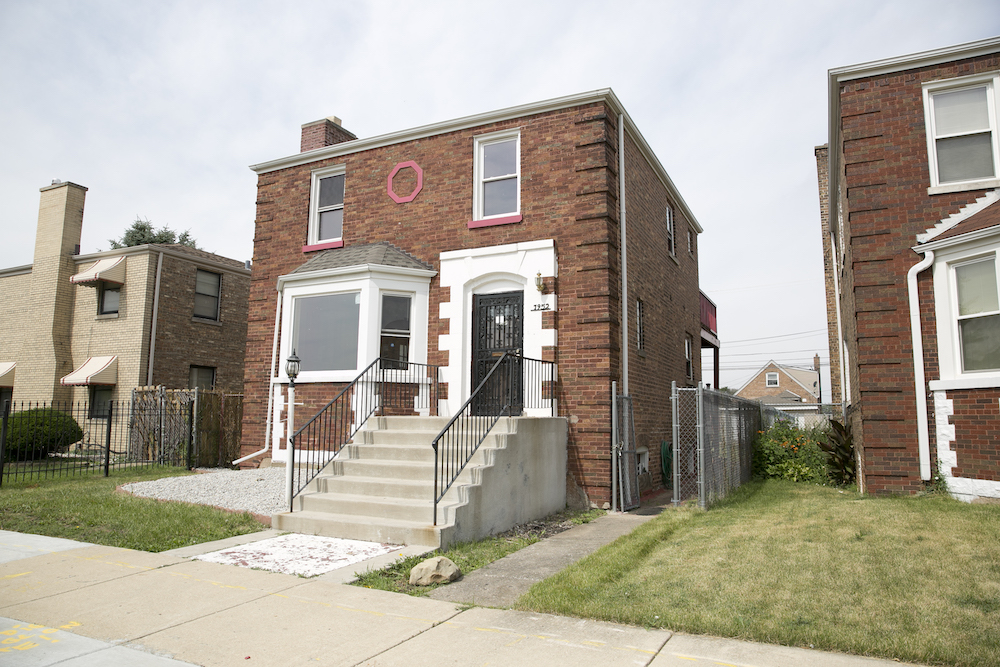
“We'll go into these neighborhoods, and we become neighbors,” said Mr. Newman. “We'll hang out and sit out in front of the place for hours, especially now that the weather's nice, and meet the neighbors and they're glad to see this.”
The neighbors were especially glad to see them start work on one of their current projects located in the Auburn Gresham neighborhood. Unoccupied for many years, the house had become a blight on the block and a tricky rehab project because of the extensive water and roofing damage.
CCLF provided a revolving line of credit to EN5 Community Development LLC for acquisition/rehab of single-family, residential properties to finance the rehab of the four-bedroom, two-and-a-half bathroom house in Auburn Gresham, which has an en suite master bathroom and a finished basement.
“So we were happy that CCLF, unlike a lot of lenders, is not afraid of the tough communities,” said Mr. Newman. “They're not afraid of the tough rehab projects.”
The Newmans worked with CCLF as part of the Chicago Neighborhood Rebuild program, a joint effort of the City of Chicago to help developers acquire and redevelop vacant properties to be sold as affordable housing options for new homebuyers on the South and West Sides of Chicago. “Maurice and Ernestine consistently deliver high-quality, attainable housing, specifically targeting the neighborhoods and blocks that benefit most from their investment in the community,” explains Sullivan Greif, CCLF Asset Manager.
When completed, the Newmans will put the house back on the market for sale at an affordable price, knowing that the work they’ve done to restore the house will be a source of pride for the new owners and their neighbors. The new owners also will benefit from the improvements the city has planned for the neighborhood.
Auburn Gresham is one of the communities included in the first phase of the city’s INVEST South/West plan designed to improve and reactivate the commercial centers people rely on for transportation, shopping and other services.
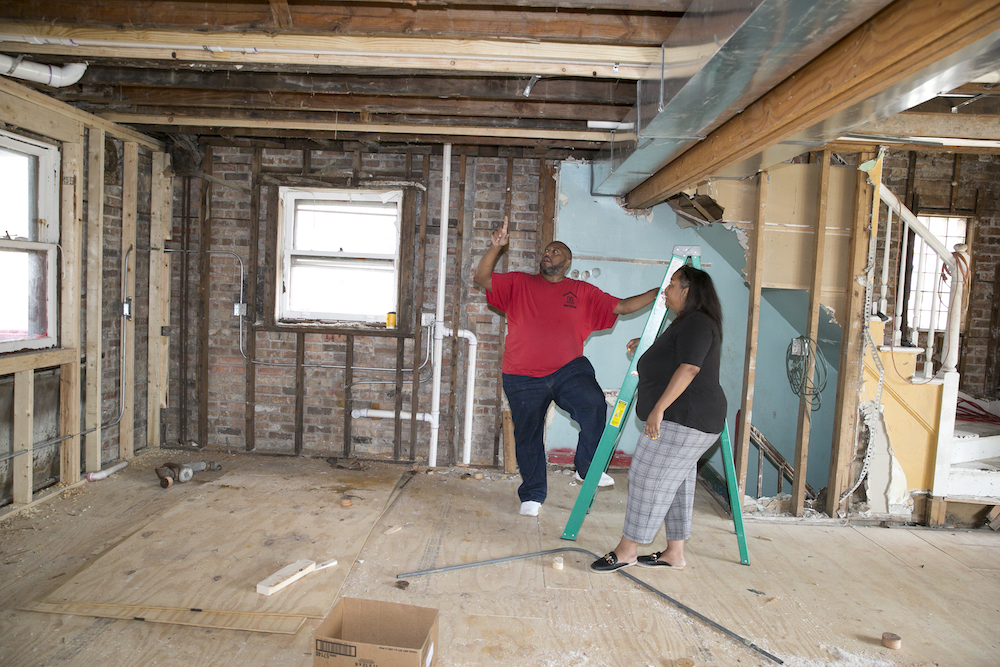
Our Impact
- $450,000 Loan
- 4 Units of Affordable Housing Created
- 20 Construction Jobs Created and Wealth Building for MBE/WBE developer.
Art In Motion Bring Arts Education to South Shore
Art In Motion (AIM) creative arts school gives South Side middle and high school students a well-rounded learning experience that nurtures their academic, artistic and socio-emotional needs.
The charter school, which opened in the fall of 2019, also gives students an opportunity for in-depth exploration and training in four areas of the arts—visual arts, music, dance, and literary arts/drama. The goal, of course, is to help students develop and strengthen the foundation of their academic and artistic potential as a way to broaden their options in life.

“In order to shift a community, you have to be able to offer them more than what they see,” said Kara May, director of partnerships and creative development at Distinctive Schools. “And the heart of AIM is to do that in however many ways we can, in order to make sure that our students have more options and have broader reach and broader scope around who they can be and what our society says they can be.”
Distinctive Schools, a nonprofit charter school management organization, worked with a team of AIM and community partners for nearly three years to bring the arts-focused school to the South Shore neighborhood. The partners include Common, the award-winning, Chicago-born rapper and actor; John Hannah, senior pastor of New Life Covenant Church Southeast; and 8th Ward Alderman Michelle Harris, who was instrumental in securing the old Solo Cup Company Factory as a site for the school.
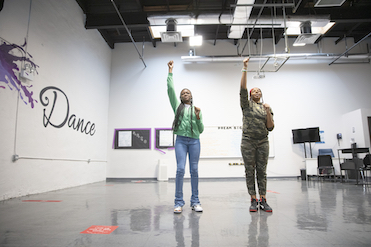
“In order to shift a community, you have to be able to offer them more than what they see,”
The school also hopes to be a community hub for the South Shore neighborhood. Construction plans are underway to create a space for weekend family events, parent training sessions, summer camps for younger children and building a court outside for sports.
“We want to do everything we can to truly be a community school, which means having a warm, welcoming and accessible place for the community to come to and spend time.” said Erin Lanoue, chief operating officer at Distinctive Schools.
CCLF provided Distinctive Schools with a $4.2 million bridge loan to keep the project going between closing on the property and the construction bonds being issued. “CCLF is pleased to have supported AIM’s mission with a $4.25MM predevelopment loan. CCLF believes strongly in the impact of arts education, and looks forward to the school becoming a cornerstone in South Shore for years to come,” said Aaron Akers, CCLF Senior Asset Manager.
AIM is a tuition-free, audition-free school open to children from all over Chicago. It is the only art-centered charter school in Chicago and one of the five Distinctive Schools network of campuses located in the city.
Our Impact
- $4,252,000 loan
- 900 Charter school seats
- 54 jobs created
- 122,928 sq. ft. community facility developed
Culver’s Pullman Serving Up Change in the Pullman Neighborhood
When it opened in the fall of 2021, Culver’s brought more than its well-known ButterBurger and frozen custard to the Pullman neighborhood on Chicago’s Far South Side. Under the leadership of franchise owner Baron Waller, the casual restaurant offered a place for local residents to sit down and enjoy a meal right in the community.
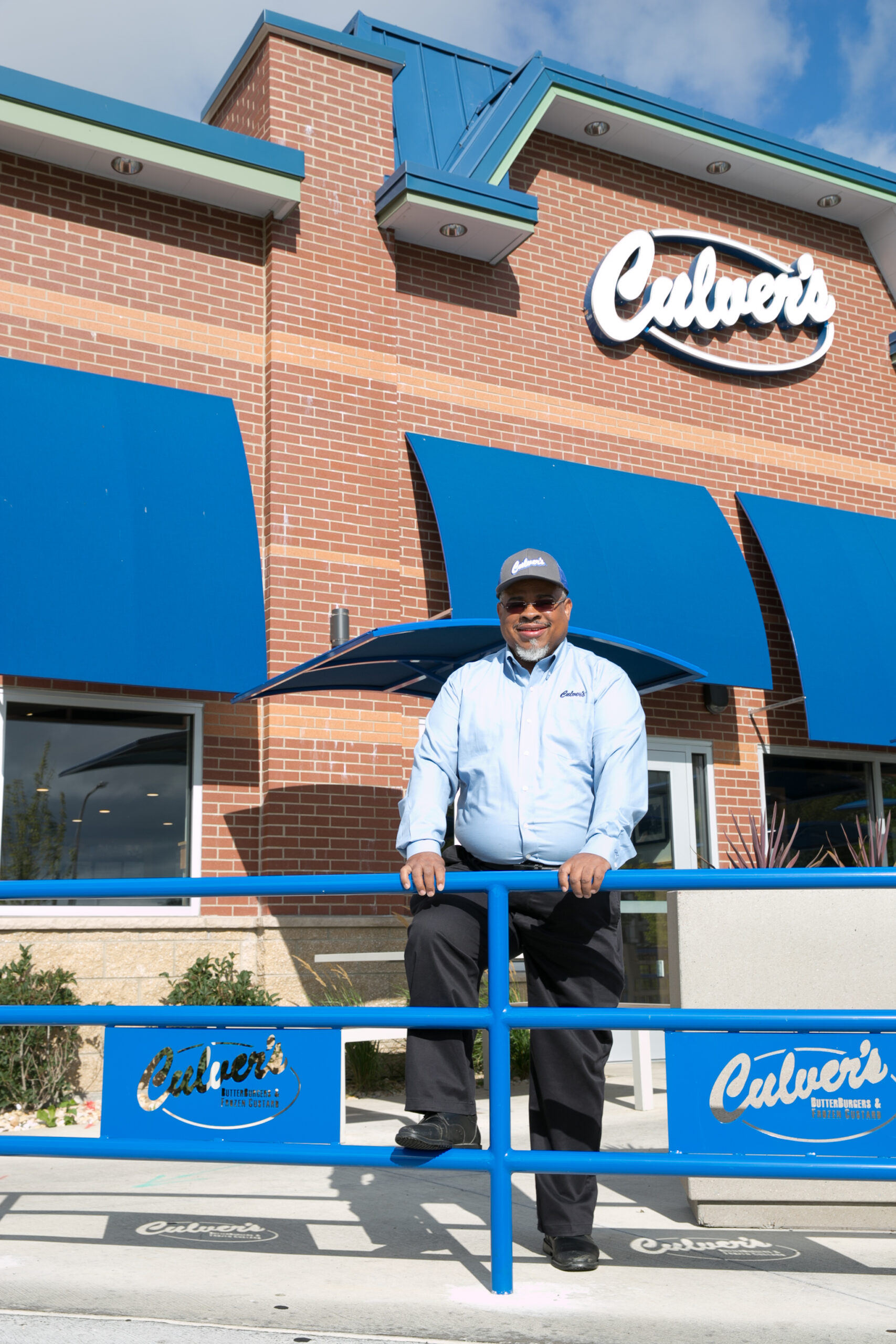
The 4,300-square-foot restaurant, which has indoor seating for 124 people, is the first freestanding restaurant in Pullman in more than 30 years and has created 40 jobs in the community. Pullman, once known as a thriving industrial neighborhood, has been in decline since Ryerson Steel and many other businesses left the area in the 1990s, leaving residents to struggle without local job opportunities or access to nearby amenities such as restaurants, grocery stores and other commercial retail stores.
“…the casual restaurant offered a place for local residents to sit down and enjoy a meal right in the community.”
Since opening his first franchise in the Southwest suburbs in 2011, Waller has fought hard to bring the food chain known for its hospitality within the Chicago city limits—a battle he finally won in 2018 when he built a Culver’s in the Bronzeville neighborhood on the South Side. That victory reinforced his desire to ensure that Chicagoans do not need to leave the city to enjoy Culver’s. It also ignited a passion in him to help create jobs in disinvested neighborhoods.
“I believe that the only way that we can make changes in our community is we have to bring jobs,” said Waller. “We can do our little part, and for me that is to open a Culver’s and bring jobs to the community.”
Waller worked in partnership with CCLF, which provided $3.65 million in financing for construction and working capital for the buildout of the restaurant. Waller also received major support for his project from Chicago Neighborhood Initiatives (CNI) to join the Pullman community. CNI has spearheaded Pullman’s revitalization plan, by creating the 180-acre, mixed-use Pullman Park development on the site. “It’s so nice to see Baron’s hard work and dedication to this project come to fruition. He is bringing African -American entrepreneurship and economic growth to the Pullman community,” said Kelly Shelton, CCLF Asset Manager.
“I knew a lot about Pullman, and I was looking to expand,” said Waller. I drove by there, and I saw this lot right off the expressway, right on the corner, and I said this will be a great place to be because my objective is to go into Chicago.”
Culver’s is part of the 111th Street Gateway Retail Center of Pullman Park, the center of the economic development within the community, which includes among its businesses a Whole Foods Market distribution center, an Amazon fulfillment center, two Gotham Greens greenhouses, Lexington Betty Smokehouse and a Potbelly Sandwich Shop.
Plans to revitalize the struggling working-class community have been long underway, and the opening of a Walmart Supercenter in 2013, which includes a full-service grocery store, helped to jumpstart the area’s economic growth when it brought much-needed jobs to the neighborhood and ended its food desert status. Since then, CNI and Pullman leaders have continued to work hard to resuscitate the community’s employment, housing, educational and entertainment offerings. Efforts that received a huge boost in 2015, when President Barack Obama designated the Pullman Historic District a national monument, which has helped to attract businesses and tourists to the neighborhood.
“We really feel that they've accepted us,” Waller said. “They come in and sit down. People come to have meetings here. So they're in the community. They use the restaurant, and that's one of the reasons why we came here. We really wanted to be part of the community, and we feel that we are.”
Waller is the largest Black Culver’s franchisee with six Chicagoland restaurants and one in Florida. He currently owns three Chicago locations in the Pullman, Ravenswood and Bronzeville neighborhoods. He has plans in place to open locations in West Garfield Park and Wrigleyville.
Our Impact
- $3.65MM loan
- 40 jobs
- Leveraged $9 million in other public and private investments
Committed to Chicagoland
Explore our loans throughout Chicagoland’s six counties and across our four sectors.
Project Type
Meet our Board of Directors and the talented staff who make our work possible.
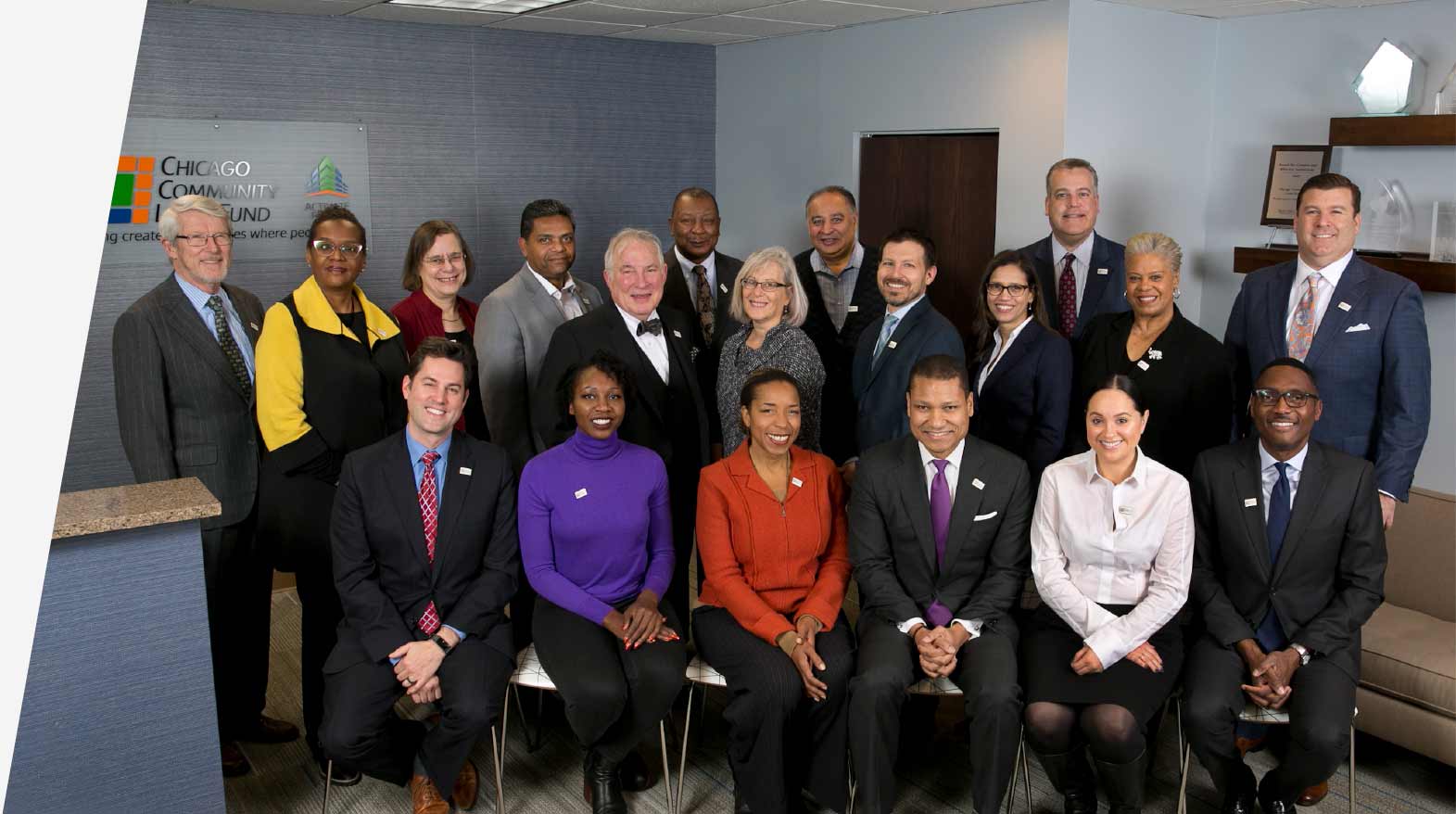
One Chicagoland: All Communities Rising CCLF’s 30th Anniversary Virtual Celebration
On October 28, 2021, CCLF celebrated 30 years of supporting transformative community development projects in underserved Chicagoland neighborhoods with an array of customers, partners, investors, funders, sponsors, city officials, board members, staff and volunteers.
The virtual bash, themed “One Chicagoland: All Communities Rising,” commemorated the milestone by applauding the numerous community-uplifting accomplishments of CCLF customers throughout the years, expressing heartfelt thanks to its many funders and sponsors, and emphasizing the importance of ensuring the continued development of all Chicagoland neighborhoods for the betterment of the region as a whole.
“This theme is especially poignant because for three decades CCLF has been making patient and flexible loans in neighborhoods that could not attract capital like developments in downtown Chicago, yet the entire metropolitan Chicago region is unable to flourish if the South and West Sides of Chicago are not thriving,” said CCLF President Calvin Holmes. “If Harvey and Elgin are not thriving, and if Maywood and Aurora and Joliet are not thriving, then the region isn’t thriving.”
The 2021 festivities kicked off with a mix of House Music tracks from DJ Carl Jenkins to entertain virtual attendees before Holmes took the stage to welcome everyone to the celebration. Master of ceremony Samantha Chatman, from local news television station ABC7 Chicago, then kept the at-home and in-studio guests engaged as she deftly led them through a program of speeches, awards and entertainment.
The celebration included dance performances from Evolucion Latina Dance Company and Deeply Rooted Dance Theater; upbeat dance tracks from the DJ were interspersed throughout the evening to maintain a festive vibe. Guests used the virtual chat feature to stay actively engaged in the party and a virtual photo booth to send pictures of themselves to the studio that were featured in the program.
The event also highlighted recent community development projects by honoring four CCLF customers as this year’s recipients of the Fannie Lou Hamer Awards for Grassroots Community Development. The award, named after American civil rights activist Fannie Lou Hamer, was created by CCLF in 2006 to recognize one borrower in each of its four loan sectors for their catalytic development projects that inspire, transform, ignite and mobilize their communities in ways that mirror Hamer’s work. Hamer believed that each individual’s involvement made a social movement stronger so that the removal of one person could never derail its lasting success.
CCLF established this award to showcase how her legacy lives on through community development.
Each year, the award recipients are individuals or organizations whose leadership and community revitalization contributions have resulted in significant positive changes that pave the way for others to follow in their footsteps. The award includes a trophy and a $5,000 prize to support recipients’ work.
In his closing remarks, Holmes announced the creation of the Communities of Color Fund, CCLF’s latest loan vehicle to help borrowers create lasting change in their communities.
“CCLF decided to create a Communities of Color Fund to provide a dedicated pool of low-cost loans—lower than what we have historically charged—and modernize underwriting to specifically support Black and Latinx communities and borrowers and others seeking to improve those communities,” said Holmes.
Guests received a 30th Anniversary photo flipbook, Vision in Action: 1991-2021, that highlights the customer projects funded by CCLF since its inception and includes a timeline of the organization’s major milestones.
To view the CCLF 30th Anniversary Virtual Celebration, visit www.cclfchicago.org.
Our Impact